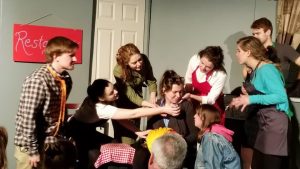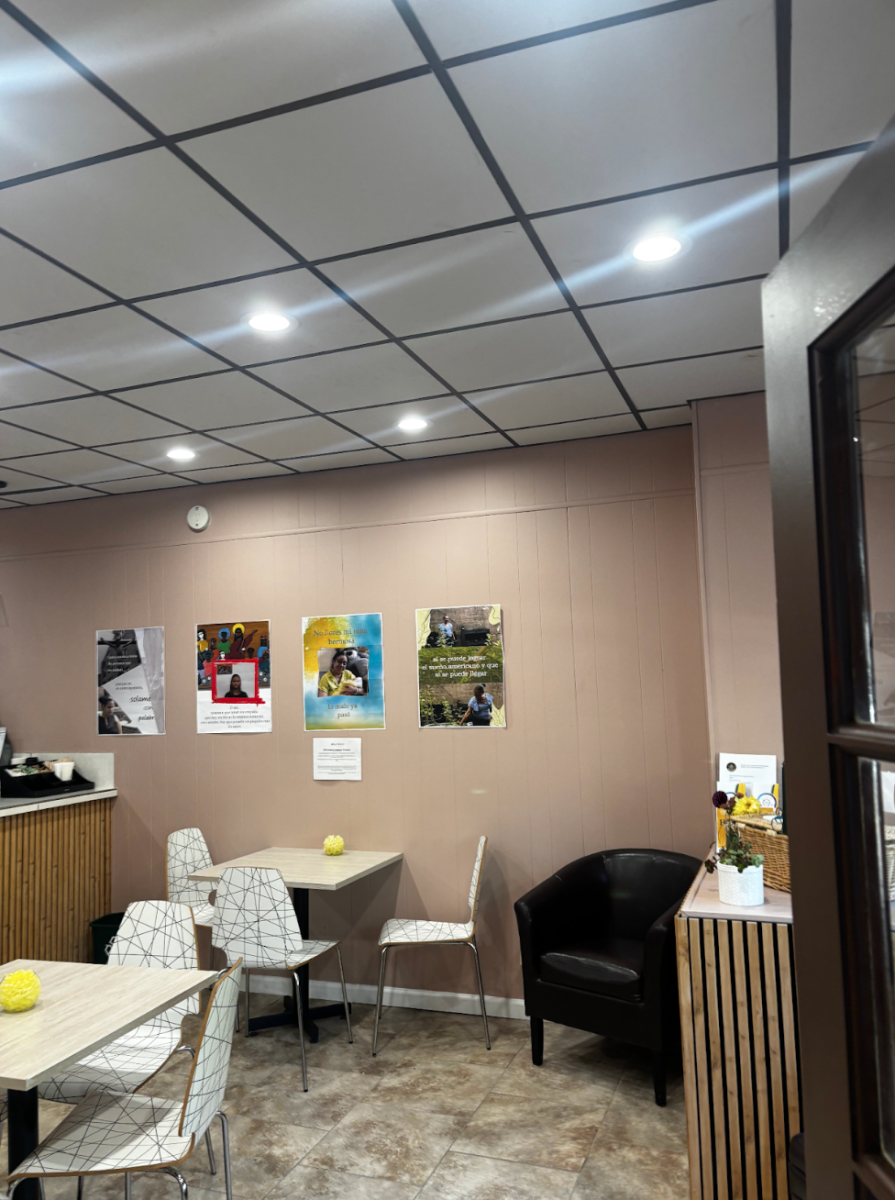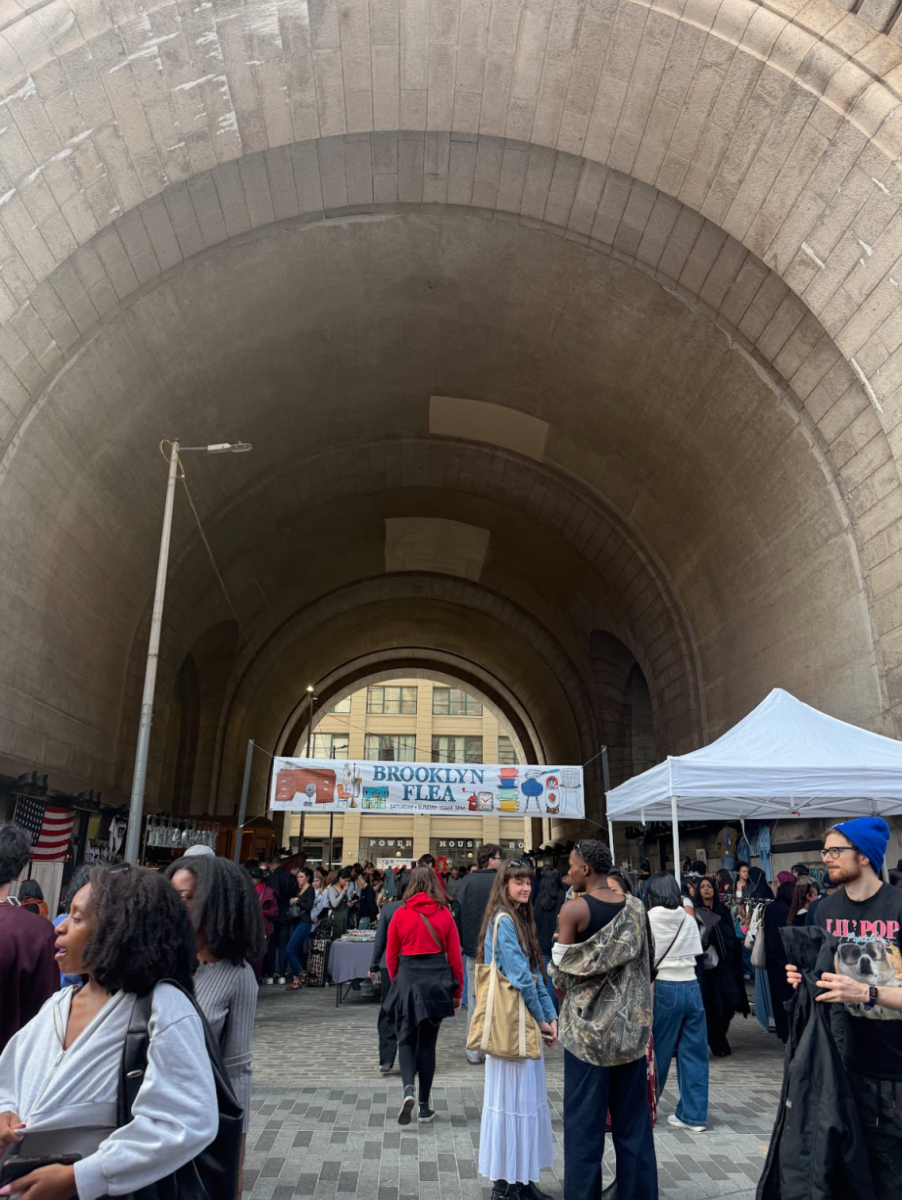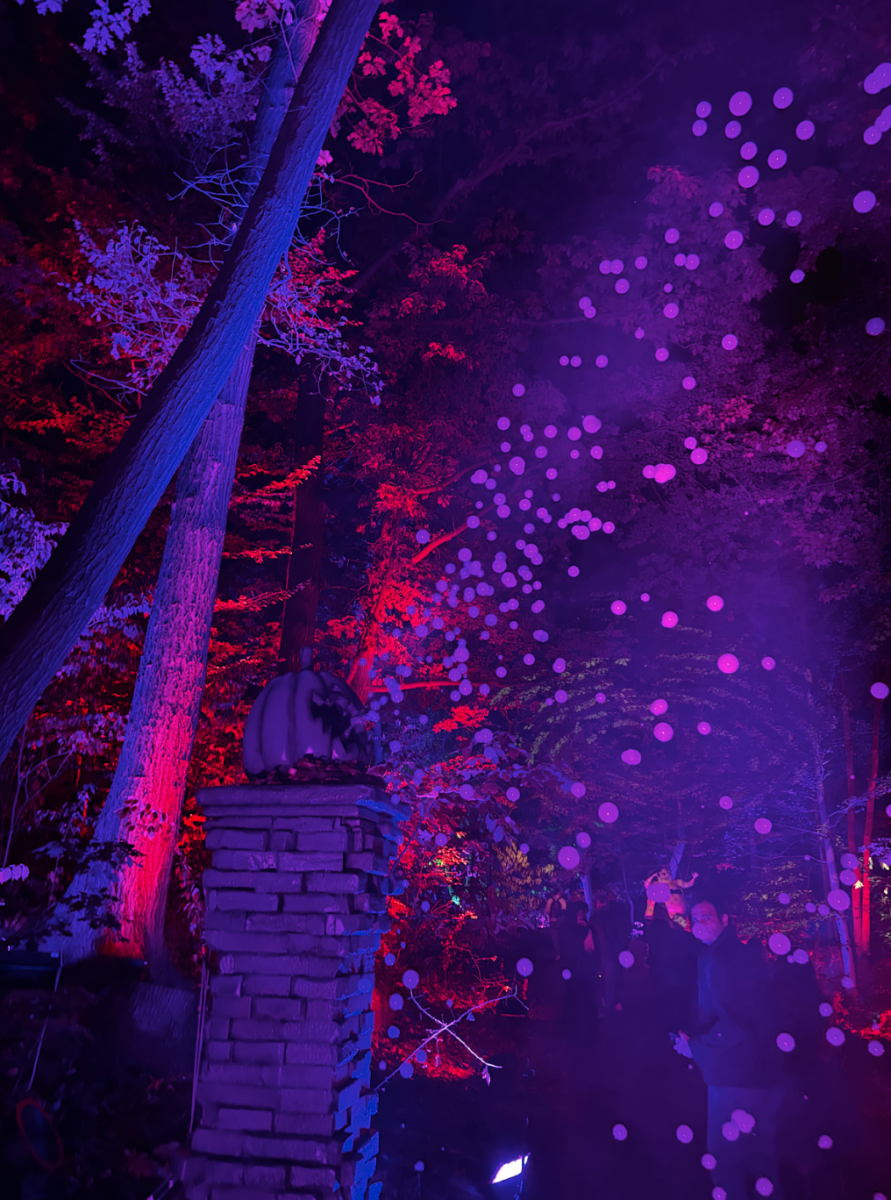By Ryan Di Corpo
In his 1936 autobiography “For My Legionaries,” Romanian fascist politician Corneliu Zelea Codreanu sought to “solve the Jewish problem” through the formation of “the new man.” What he got were rhinoceroses.

FET performed “Rhinoceros” at Collins Audtiorium’s Blackbox Theatre (Courtesy of Michael Rinaldi).
It was the rise of anti-Semitic rhetoric and formation of the ultra-right Iron Guard in Romania which led playwright Eugène Ionesco to pen “Rhinoceros,” performed this past Saturday at Collins Auditorium by Fordham Experimental Theatre.
The play, written in 1959, is often characterized as a key work of the “Theatre of the Absurd,” a term used by dramatist Martin Esslin to describe works which “shock[ed] its audience out of complacency” in the aftermath of World War II.
Seminal absurdist works such as Samuel Beckett’s “Waiting for Godot,” also recently performed at Fordham, and Harold Pinter’s “The Caretaker” question the purpose of existence and provide unafraid commentary on religion, society and in the words of Esslin, “the harsh facts of the human situation.”
By the time Ionesco wrote “Rhinoceros,” he was sufficiently concerned about the human situation in his native Romania.
The plot of the play, at surface level, is fairly direct: an unkempt, alcoholic-in-denial named Bérenger watches in horror as each of his friends and his love interest forsake their prior moral convictions and turn into rhinoceroses. By the end of the play, only Bérenger, in this production “Berry,” declares his firm intention to stand against this bizarre, growing trend.
Bérenger can be read as a stand-in for Ionesco, who watched with similar horror in the late 1920s as “professors, students [and] intellectuals” became rhinoceroses by joining the Iron Guard.
Also known as the Legion of the Archangel Michael, the Guard advocated for a national return to Orthodox Christian morality, a rejection of capitalism and a virulent campaign of violence against Romanian Jews. In July 1940, the Guard-led Dorohoi program saw Jewish people raped, tortured and subsequently murdered in a mass effort involving members of the Romanian military.
“Rhinoceros” does not portray such extreme physical violence, but rather an ideological violence. Ionesco chooses to focus on the phenomenon by which man is swept up by the times, abandoning his own humanity to take part in an animal crusade of hatred and murder.
In Fordham’s new production, Daniel Camou, FCLC ’20, is excellent as Berry, alternating at a moment’s notice between self-deprecation and righteous self-assurance. He does not succumb to college theatre overacting, which is usually marked by shouting every line and a general reliance on histrionics.
Colleen Granberg, FCRH ’18 delivers a convincing performance as a woman who not only accepts her transformation into a rhinoceros, but comes to embrace it with full-throated resolve. She skillfully moves her character from confident and level-headed to blind in her devotion to her fellow rhinoceroses.
Zoe Petrak, FCRH ‘19 is immediately likeable as Daisy, with whom Berry is in love. It is Petrak’s portrayal of Daisy and her being seemingly impervious to the chaos forming around which makes her descend into a rhinoceros even more disturbing.
The production itself, staged in Collins’ Blackbox Theatre, makes good use of lighting to illustrate the contrast between the bright normality of the scenes in an office or an apartment, and the dark, brooding absurdity brought on by the appearance of the titular animal. The small-scale theatre works in favor with the play, fostering an unsettling yet appropriate intimacy between the actors and the spectators.
Each rhinoceros is simply dressed in black pants and shoes, a white shirt and a light attached to each animal’s head which functions as a horn.
Fordham Experimental Theatre should be applauded for tackling this intellectually complex show and delivering. But why perform “Rhinoceros” today? What does now, at a Jesuit university in New York City, have to do with the early 20th century in Romania?
In their program note, director Rita Padden, FCRH ’18, and assistant director Hillary Bosch, FCRH ’19, state that our current society is distinguished by “abnormal events that are shocking and violent.” Padden and Bosch hope that their production of “Rhinoceros” will show that if “we wait to act until crises […] affect us directly, then we have waited too long.”
As theatre exists in the present, Ionesco’s play is more than a snapshot of history gone by: it is a warning for now. So take heed if you hear that low, soft rumble in distance: rhinoceroses love parades.







































































































































































































